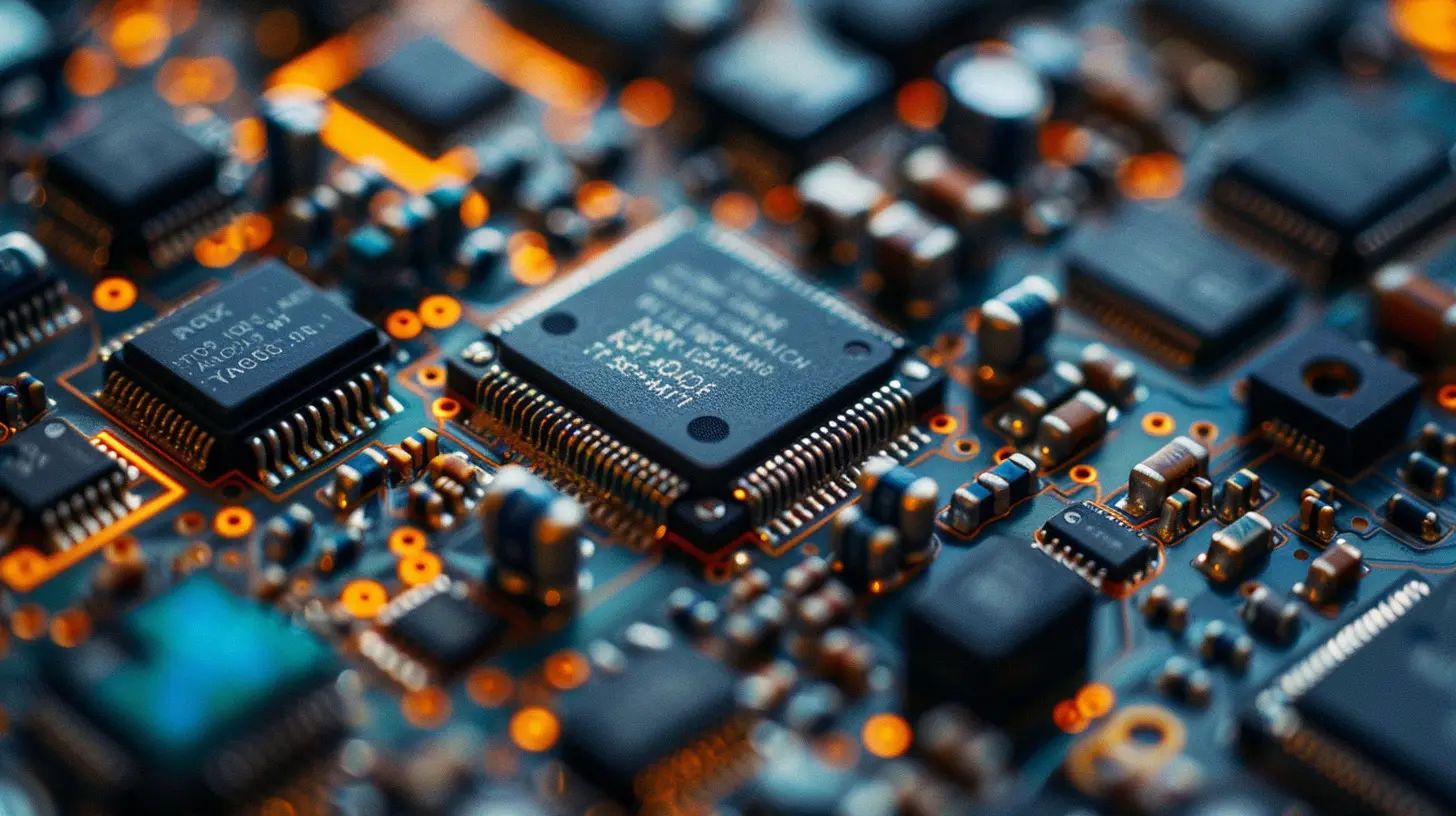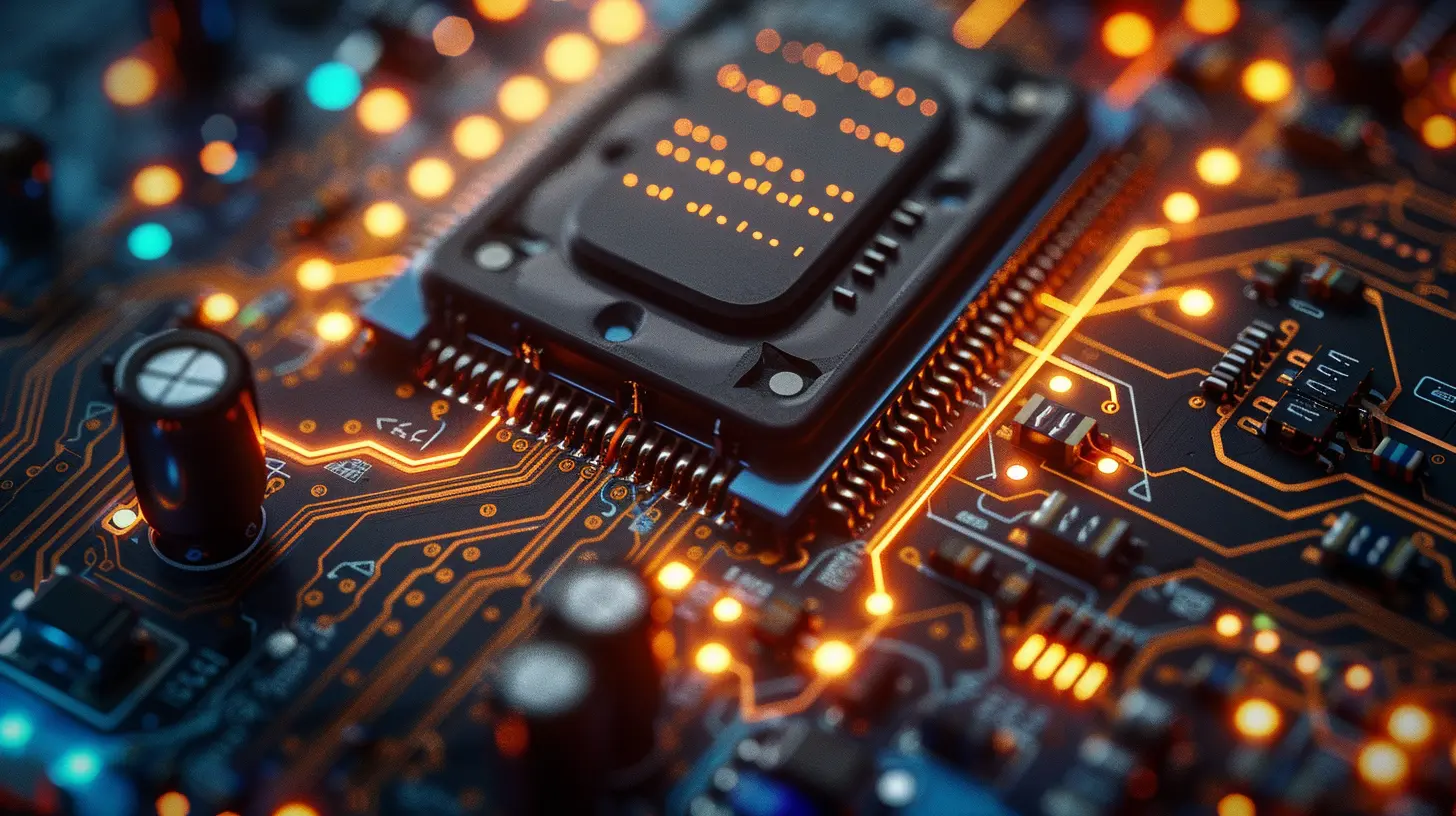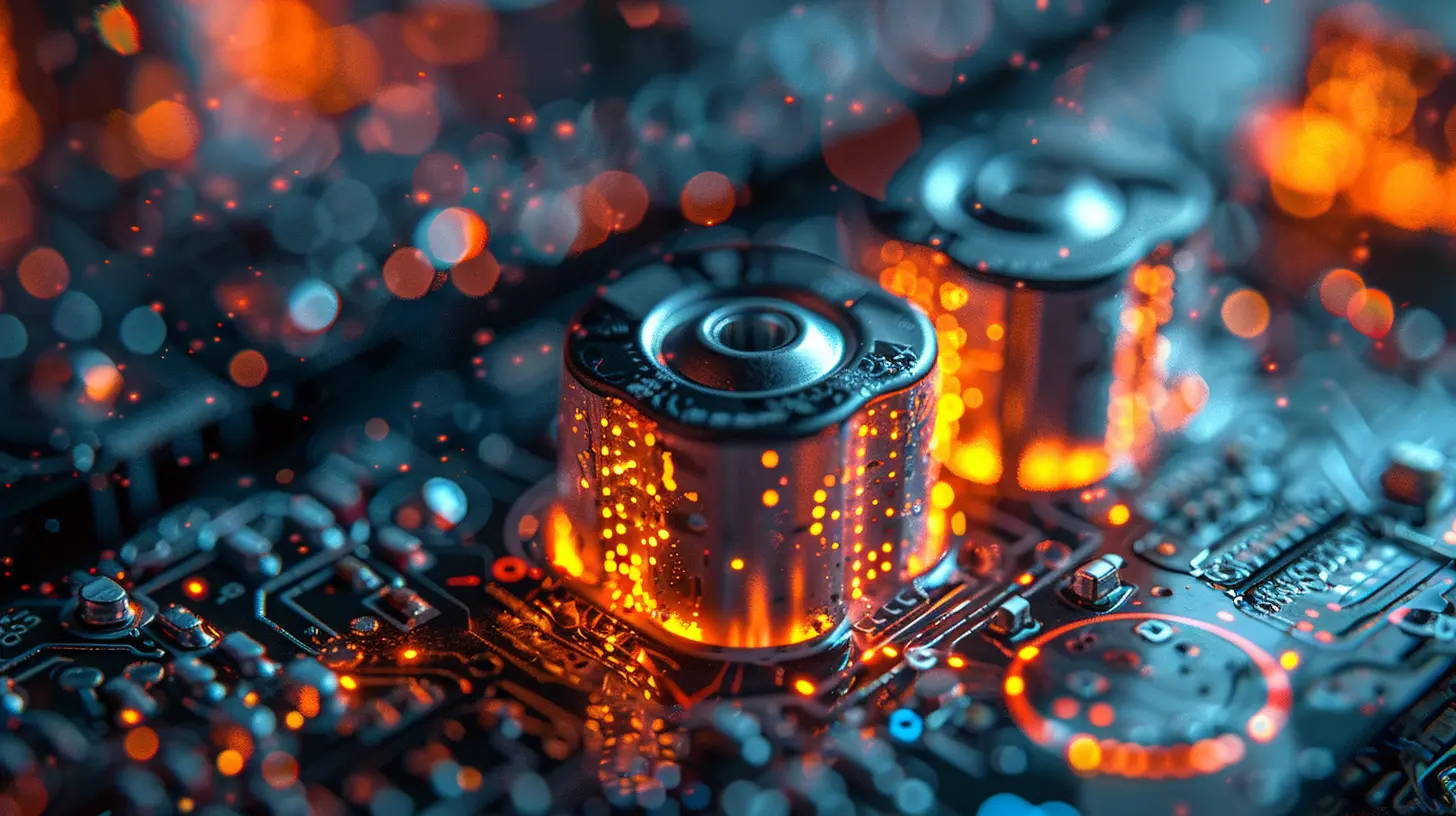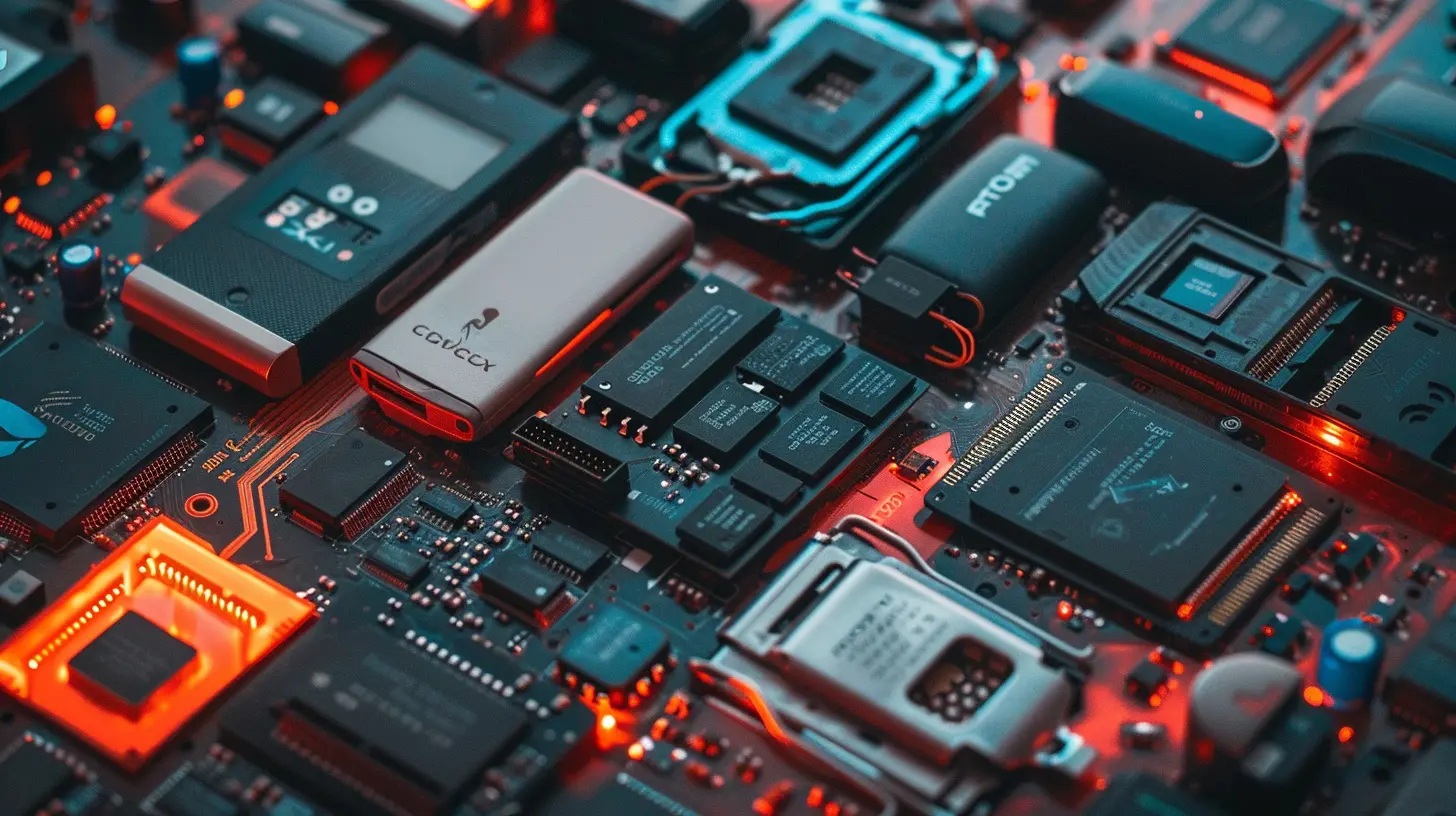The Importance of Battery Efficiency in Consumer Electronics
26 April 2025
In today’s world, we live and breathe through our devices. Whether it’s smartphones, laptops, smartwatches, or even electric vehicles, almost everything we use runs on some form of battery. But have you ever stopped and thought about how crucial battery efficiency is to our daily lives? It’s not just about making sure your phone lasts through the day without scrambling for a charger; it’s much bigger than that.
Battery efficiency isn’t just a feature—it’s the backbone of the entire tech ecosystem. As our reliance on gadgets grows, so does our demand for longer-lasting batteries and faster charging times. Let's dive into why battery efficiency is so important in consumer electronics and how it shapes the future of the tech we love.

What is Battery Efficiency?
Before we go any further, let’s clarify what we mean by "battery efficiency." Simply put, battery efficiency refers to how well a battery converts stored energy into usable energy while minimizing waste. The more efficient a battery is, the longer it lasts on a single charge and the less energy it loses in the process.Now, you might be wondering, "Why should I care about battery efficiency?" Well, if you’ve ever been frustrated by a phone that dies after just a few hours or a laptop that struggles to keep up during a long day, then battery efficiency is already on your radar—even if you didn’t realize it.

The Growing Demand for Battery Efficiency
Consumer electronics have become indispensable in our daily routines. From dawn until dusk (and often well into the night), we’re interacting with devices that require power. Whether it's watching videos, browsing the internet, playing games, or working on important projects, we need our devices to keep up. And that’s where battery efficiency comes in.As our devices become more powerful and feature-rich, they also demand more energy. Think about it: Every year, smartphone manufacturers boast about better cameras, faster processors, and brighter screens. But all of those upgrades come with a cost—more power consumption. If battery technology doesn’t evolve at the same pace, you end up with a high-tech device that can’t last a full day of use. And let’s be real, what’s the point of a cutting-edge gadget if it’s constantly tethered to a wall outlet?
Why Are Consumers So Invested in Battery Life?
In a nutshell, we want freedom. The freedom to use our gadgets without constantly worrying about the battery hitting 0%. No one likes the anxiety of watching their battery percentage drop while they’re out and about with no charger in sight. Battery efficiency directly impacts how we use our devices, and more importantly, how long we can use them without interruption.Imagine being on a long road trip. Your GPS is guiding you, your music is playing, and you’re seamlessly switching between apps to check the weather, text friends, and manage your itinerary. Now, imagine your phone dying halfway through the journey. It’s not just an inconvenience; it’s a disruption to your entire experience. This is why efficient batteries matter—they keep us connected, productive, and entertained without missing a beat.

How Battery Efficiency Affects the Environment
Okay, so we’ve established that battery efficiency is great for consumers. But did you know it also plays a crucial role in reducing our environmental footprint?Think about it: The more efficient a battery is, the less frequently you need to recharge your devices. And fewer recharges mean less electricity consumption. When you consider the billions of devices used worldwide, even small improvements in battery efficiency can lead to massive energy savings on a global scale.
And it doesn't stop there. Battery efficiency also affects the lifespan of a device. When a battery is more efficient, it tends to last longer before needing a replacement. This, in turn, reduces electronic waste—a growing problem in today’s world. If we can extend the life of our devices by improving battery technology, we can help reduce the mountains of discarded electronics piling up in landfills.
That’s right, better batteries don’t just mean more convenience for you—they also help save the planet. It’s a win-win.

Battery Efficiency and Performance Trade-offs
Now, let’s address the elephant in the room: Aren’t there trade-offs between battery life, performance, and size?Absolutely. Balancing battery life with device performance is a constant challenge for manufacturers. On one hand, consumers demand ever-thinner devices, which leaves less room for larger batteries. On the other hand, we also want powerful devices that perform multiple tasks simultaneously. It’s a balancing act, and battery efficiency is at the heart of this tug-of-war.
To compensate for these limitations, manufacturers have started focusing on optimizing the software and hardware to make better use of the available battery capacity. For instance, modern smartphones use energy-efficient processors that can switch between high-performance and low-power modes depending on the task at hand. Additionally, dark mode and battery-saving features are becoming more popular as easy ways to stretch battery life.
However, even with these advancements, we still hit limitations. You’ve probably noticed that batteries degrade over time, meaning they become less efficient with each charge cycle. This is an unavoidable consequence of current battery technology, particularly for lithium-ion batteries, which power most of our gadgets.
But here’s the thing: Research into new battery technologies is constantly ongoing. Solid-state batteries, which promise better energy density and longer life spans, are on the horizon. Once these innovations hit the mainstream, we could see massive improvements in battery efficiency across all consumer electronics.
The Role of Battery Efficiency in Wearable Devices
Let’s shift gears and talk about wearables. Smartwatches, fitness trackers, and wireless earbuds have become incredibly popular over the past few years. But unlike phones or laptops, these devices are much smaller, which means they have significantly less room for a battery.This is where battery efficiency becomes even more critical. Since we expect our wearables to last all day (or longer) on a single charge, manufacturers have to get creative with how they manage power consumption. For example, some smartwatches will automatically dim the display or disable certain features when the battery is low, while others will prioritize essential functions like step tracking and notifications.
Wearable devices also rely on low-power processors and efficient sensors to extend battery life. Without these innovations, the experience of using a smartwatch or fitness tracker would be far less enjoyable. After all, no one wants to take off their smartwatch in the middle of the day just to charge it!
How Battery Efficiency Influences Electric Vehicles
It’s impossible to discuss battery efficiency without touching on electric vehicles (EVs). While they’re not exactly the same as consumer electronics, EVs rely heavily on battery technology—the same lithium-ion batteries that power your phone or laptop, just on a much larger scale.For EVs, battery efficiency directly impacts range, which is a key concern for consumers. The more efficient the battery, the farther you can drive on a single charge. This is a huge selling point for electric cars, as range anxiety (the fear of a vehicle running out of power before reaching a charging station) remains one of the biggest barriers to widespread EV adoption.
Improving battery efficiency in EVs also has the potential to reduce charging times and lower the overall cost of electric vehicles, making them more accessible to a broader audience. As we move toward a future where electric vehicles become the norm, advancements in battery technology will play a pivotal role in shaping the automotive industry.
The Future of Battery Efficiency
So, what does the future hold for battery efficiency in consumer electronics? If you ask me, the sky's the limit.Researchers are currently exploring a variety of new battery technologies, including solid-state batteries, graphene batteries, and even bio-batteries. These innovations promise to deliver faster charging times, longer life spans, and higher energy densities compared to current lithium-ion technology.
Additionally, manufacturers are working on developing more energy-efficient components, such as processors, displays, and sensors, to further extend battery life. We’re already seeing some of these advancements trickling into consumer devices, but there’s still a lot of untapped potential.
One thing’s for sure: As our gadgets continue to evolve, so will the batteries that power them. And who knows? We might soon live in a world where you only need to charge your phone once a week or your smartwatch lasts for days on end without needing a recharge.
Conclusion
Battery efficiency is one of the most important factors in the world of consumer electronics. It affects everything from how long you can use your device to how much energy you consume—and even how much waste you produce. As devices continue to become more advanced, the demand for efficient, long-lasting batteries will only grow.Whether it’s your smartphone, laptop, smartwatch, or even your electric vehicle, battery efficiency plays a role in shaping your overall user experience. And while we’ve made great strides in improving battery technology, we're just scratching the surface of what’s possible.
So the next time you’re frustrated by a low battery, remember: The future of battery efficiency is bright, and it’s only going to get better from here.
all images in this post were generated using AI tools
Category:
Battery TechnologyAuthor:

John Peterson
Discussion
rate this article
8 comments
Alexa Marks
Battery efficiency isn't just a feature; it's a revolution! Embracing optimized power use empowers innovation, sustainability, and user experience. Let's charge into a greener, more efficient future!
May 11, 2025 at 6:20 PM

John Peterson
Thank you for your insightful comment! I completely agree that battery efficiency is pivotal for driving innovation and sustainability in consumer electronics. Together, we can indeed pave the way for a greener future!
Sybil Wells
Battery efficiency is crucial for performance and longevity.
May 8, 2025 at 3:19 AM

John Peterson
Absolutely! Battery efficiency directly impacts both performance and longevity, ensuring devices run smoothly and last longer, which is vital for user satisfaction.
Noelle Stewart
Battery efficiency is a game-changer in consumer electronics! By maximizing battery life, we not only enhance user experience but also contribute to a more sustainable future. Let's embrace innovation that empowers us to do more while consuming less. Every charge counts!
May 4, 2025 at 4:13 AM

John Peterson
Thank you for your insightful comment! Indeed, maximizing battery efficiency is crucial for enhancing user experience and promoting sustainability in our tech-driven world. Let's continue to push for innovations that benefit both consumers and the planet!
Angela Sanchez
Power up your devices, save the planet!
May 2, 2025 at 3:08 AM

John Peterson
Absolutely! Efficient batteries not only enhance device performance but also reduce environmental impact. Let's power up responsibly!
Hannah Newman
Great insights! Battery efficiency truly impacts our daily lives; it's crucial for sustainable technology and user experience.
May 1, 2025 at 4:18 AM

John Peterson
Thank you! I appreciate your feedback. Battery efficiency is indeed vital for both sustainability and enhancing user experience in our devices.
John Wallace
“Battery efficiency: the unsung hero of our tech-filled lives! Without it, our gadgets would be as useful as a chocolate teapot. Let’s give a round of applause to those little powerhouses—keeping our phones alive and our TikTok obsessions thriving! Here’s to longer-lasting fun and fewer charging breaks!”
April 29, 2025 at 12:35 PM

John Peterson
Absolutely! Battery efficiency is indeed vital for our daily tech use, enabling longer lasting devices and uninterrupted enjoyment. Cheers to the advancements that keep our gadgets powered!
Gunnar McDonald
Battery efficiency is crucial in consumer electronics, impacting user experience, device longevity, and sustainability. As technology advances, prioritizing efficient battery design can enhance performance while reducing environmental footprints, making it an essential focus for manufacturers and consumers alike.
April 28, 2025 at 8:38 PM

John Peterson
Thank you for your insightful comment! You're absolutely right—battery efficiency plays a vital role in enhancing user experience, extending device life, and supporting sustainability efforts. Prioritizing efficient designs is key for both manufacturers and consumers.
Astralis Hunter
What innovative strategies are companies exploring to enhance battery efficiency? I'm intrigued by how these advancements could reshape our everyday tech experiences and sustainability efforts!
April 28, 2025 at 5:00 AM

John Peterson
Companies are exploring solid-state batteries, advanced anode materials, and AI-driven energy management systems to enhance battery efficiency. These innovations promise longer-lasting devices, faster charging, and greater sustainability, ultimately transforming our tech experiences.
MORE POSTS

Best Collaboration Tools for Remote Development Teams

The Role of Robotic Process Automation in Fraud Detection and Prevention

How Wearables Could Evolve into Implantable Tech

Can Flow Batteries Be the Solution for Large-Scale Energy Storage?

The Role of Fintech in Bridging the Gender Financial Inclusion Gap

Insider Threats: When Your Biggest Risk Works in Your Office